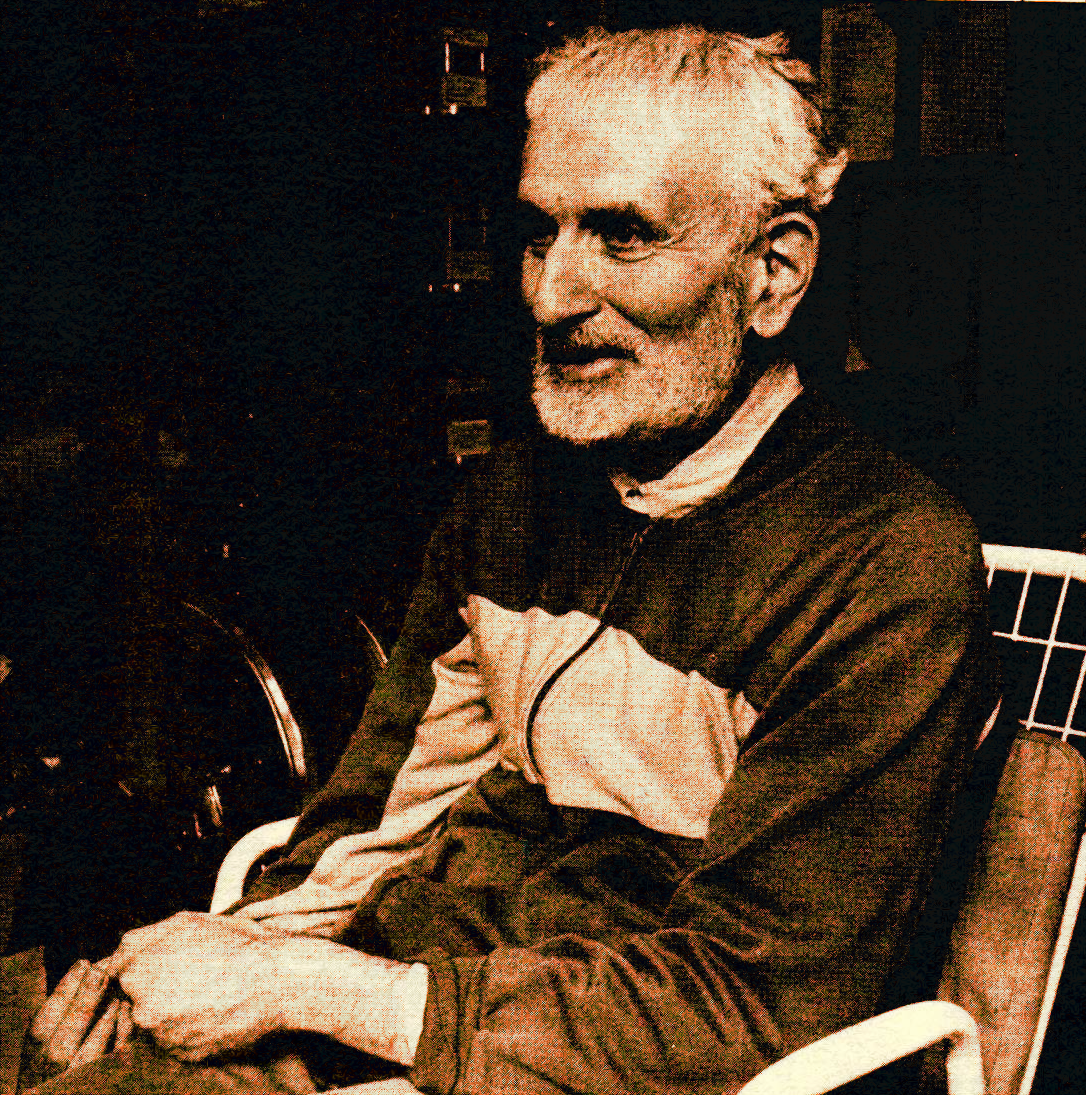
Page: A 12
THE NEW MEXICAN
Santa Fe, N.M.
Monday, December 21, 1987
FINDING HIS SPIRITUAL DIRECTION
Santa Fe artist enjoys life despite Parkinson’s disease
By MELISSA ADAMS
The New Mexican Staff
Photo by Sydney Brink/The New Mexican
He’s an artist, an author, a poet, an often witty philosopher and a friend to staff members and clients at Open Hands, an adult health care center. He’s known simply as Hi Ka Lu. He’s 66 and he has Parkinson’s disease, a degenerative disease characterized by tremors and muscular rigidity. The disease has given his body a timid frailness, but his mind still is sharp. He speaks softly in a slightly German accent.
“He’s an extraordinary human, very talented, “ said Cecelia Portal, coordinator of the Open Hands adult care program. “He’s very caring. His humanity is immense. His mental capabilities are marvelous.”
Hi Ka Lu is particularly fond of the art programs. “I’m an artist, though I’m limited in what I can do now,” he said.
“He’s always into it, no matter what the media, no matter what the physical demand is. He tries,” Portal said. “He’s a very quiet man, observant and he absorbs everything.” Hi Ka Lu keeps a journal in which his trembling hands write poetry. “Poetry is concrete. You can hold it in your hand,” he said.
His drawings are detailed and abstract, often with many arrows pointing in different directions. “Whatever comes out,” he said, “It’s spontaneous. The arrows point to something, they express the visions in my mind.” He is also self-published, A Play for Puppets, for which he also drew the illustrations.
“He has an extra kind of awareness of what is going on, but he’s very quiet,” said Christopher Rocca, an Open Hands staff member. “He comes out with axioms, pointed comments about the state of the world. They are humorous, but sometimes very serious.”
“He is a man who is almost completely incapacitated and yet he has a mind that is always working, a very interesting mind,” said Bernard Le Roux, a volunteer who has becomes friends with Hi Ka Lu. Le Roux says he tries to keep his friends body working by taking 15 to 20-minute walks with him. “Then when I get back, I keep his mind working also. I ask him questions. He needs the stimulation.”
Hi Ka Lu is a name taken by Carl Flarsheim, before he moved to Santa Fe 15 years ago. It is a spiritual name taken from the ancient Japanese faith known as Shinto. “I could basically find out who I was without having to listen to someone else tell me,” he said.
The principles of the faith seemed to answer questions he had in his life. “I went through a period of desperation. I had to find myself,” he said. He was in New York teaching art classes at Cooper Union at the time. “What led me to my search is that I had to find a rationale for what happened to me during the war and I couldn’t find it in most religions,” he said.
He grew up in a Jewish family in Germany as Carl Fernbach. At one time he was attracted to Catholicism because he would attend church with his Catholic cook. When he was introduced to Judaism, he preferred the pageantry and decorum of Catholicism better. At the age of 10 or so, he decided he wanted to be a rabbi. “My family wasn’t very religious, I guess I was trying to pay dues for that,” he said. All those dreams were shattered at age 15 when Adolf Hitler surfaced into power in his homeland. His parents sent him to the United States on a children’s transport. He never saw them again.
He was adopted in Chicago by the Flarsheim family, whose name he took. When he was old enough, he joined the U.S. Army as a German citizen. “I was known as an enemy alien,” he said. He was a radar technician and served in North Africa.
After the war, he worked in Chicago, New York and Philadelphia as an industrial artist. It wasn’t until he acquired his new name and spiritual directions that he and his wife, Sarai Sapota and their two children, decided to move to Santa Fe, where at various times he ran a doughnut shop, drove a cab and opened the Japanese Tea Room.
He first became aware he was ill five years ago when he received a speeding ticket, he noticed a trembling in his hands. “I thought I was just nervous, but that’s when the disease surfaced,” he said. Hi Ka Lu doesn’t complain about his disease. “I’ve accepted it but I don’t like it.” What is difficult for him to accept is the accompanying memory loss. “The access to my memory is becoming more difficult. That’s the problem,” he said.
He spends his days at Open Hands so his wife can work. “I like it here because people are very loving,” he said. “It’s a deep love.”
